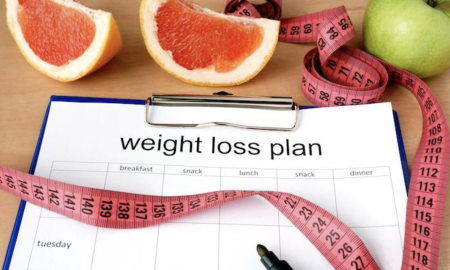
You already know that calcium is beneficial for your bones. It is essentially a building block of bones and contributes to bone strength maintenance throughout your life. However, calcium can only achieve its full bone-building potential if your body receives an adequate amount of vitamin D.
Calcium and vitamin D work in tandem to safeguard your bones—calcium aids in the formation and maintenance of bones, while vitamin D aids in the proper calcium absorption. Thus, even if you consume adequate calcium, it may go to waste if you are vitamin D deficient.
What is Calcium?
Calcium is a mineral that is most frequently associated with strong bones and teeth. Still, it also plays a critical role in blood clotting, muscular contraction, and the regulation of normal heart rhythms and neuron activities. Around 99% of calcium in the body is stored in bones, with 1% in blood, muscle, and other tissues.
What is Vitamin D?
The Vitamin D is both a hormone and a vitamin produced by our bodies. It is a fat-soluble vitamin that has long been recognized for its ability to aid the body in absorbing and retaining calcium and phosphorus, both of which are necessary for bone formation. According to this reliable family dentist in Lancaster, vitamin D is not just essential for bone growth but for maintaining good dental health as well.
Additionally, laboratory studies demonstrate that vitamin D can inhibit cancer cell growth, aid in infection prevention, and reduce inflammation. Numerous organs and tissues contain vitamin D receptors, implying significant implications beyond bone health, and scientists are actively studying additional possible purposes.
Why Calcium and Vitamin is Important for Bone Health
Vitamin D is required for the body to absorb calcium. Calcium helps maintain your bones and muscles healthy and strong, including your heart.
Individuals who do not consume sufficient calcium and vitamin D throughout their lives have a greater risk of developing thin, brittle bones (osteoporosis) in their older age. Thin and brittle bones are prone to fracture, resulting in significant injuries. This is why it is critical to consume adequate calcium and vitamin D as a child and an adult. It assists in maintaining bone strength as you age and protects against possible fractures.
Vitamin D is also used by the body to aid in the absorption of calcium and the proper functioning of the muscles. If your muscles do not receive an adequate amount of calcium, they may cramp, ache, or feel weak. You may have persistent (long-lasting) muscle aches and pains. Consuming a proper amount of vitamin D helps prevent these disorders.
Children who do not receive proper vitamin D may not grow as rapidly as they are. Additionally, they risk contracting a rare ailment called rickets, which results in weaker bones.
How Can You Increase Your Calcium And Vitamin D Intake?
Calcium is found in various foods, including cheese, milk, and yogurt. Calcium-rich vegetables include broccoli, kale, and Chinese cabbage. Calcium can be obtained by eating the soft edible bones found in canned sardines and salmon. Calcium-fortified foods include certain cereals, juices, and tofu. The amount of calcium added to the food will be indicated on the label.
Vitamin D is found in various foods, including tuna, salmon, and mackerel. These are some of the most excellent foods to eat if you want to increase your vitamin D intake. Additional vitamin D-containing foods include egg yolks, cheese, and beef liver. Additionally, vitamin D can be obtained through fortified foods such as milk and certain cereals, yogurts, orange juices, margarine, and soy beverages.
Certain individuals who do not consume enough calcium and vitamin D may require supplements with the use of a BuzzRX coupon card and other discount promos available which allows them to purchase calcium and vitamin D supplements for less than the usual price.
Calcium supplementation is provided in the form of citrate or carbonate. Calcium carbonate is most readily absorbed when consumed in conjunction with meals. In addition, calcium citrate is an easily absorbed mineral that can be taken with or without food. Spreading calcium throughout the day can help alleviate stomach distress and aid in calcium absorption.
How Vitamin D Deficiency Affects Your Health?
When you have a Vitamin D deficiency, it can result in bone loss, exacerbating osteoporosis and fractures (broken bones).
Severe vitamin D deficiency can also contribute to the development of other disorders. It can cause rickets in youngsters. Rickets is a rare condition in which the bones become brittle and bendable. Infants and children of African descent are more likely to contract rickets. Severe vitamin D deficiency in adults can result in osteomalacia. Osteomalacia is a condition that results in bone pain, brittle bones, and muscular weakness.
How Calcium Deficiency Affects Your Health?
Hypocalcemia, often called calcium deficiency disease, is a condition in which the blood calcium levels are alarmingly low. A calcium deficit may present with no early symptoms. Although it is typically minor, it can become life-threatening if left untreated. Calcium deficiency symptoms include the following:
- Severe Fatigue
- Dental Issues
- Muscle-Related Problems
- Symptoms Of The Nails And Skin
- Depression
Final Thoughts
Consuming a sufficient quantity of calcium and vitamin D can improve your bone health the most. Apart from strengthening your bones, these vitamins and minerals are an excellent investment that you will appreciate as you age. Calcium and Vitamin D are present in various foods and medications.

















Follow Us